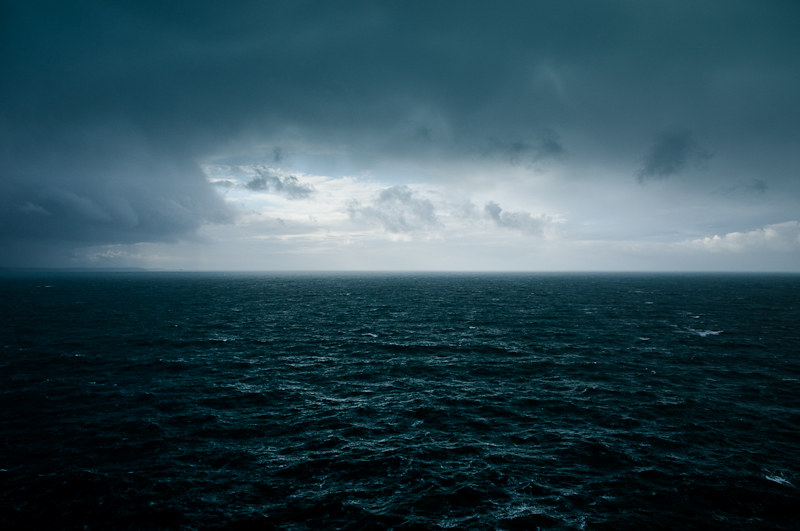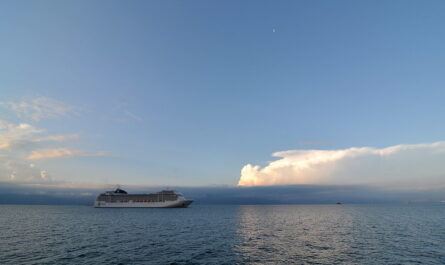The Atlantic Ocean, stretching over 41 million square miles, is a breathtaking expanse of biodiversity and natural beauty. From remote islands to coastal ecosystems, the Atlantic offers countless opportunities for exploration and connection with nature. Eco-tourism in the Atlantic has gained significant momentum as travelers seek sustainable and responsible ways to engage with the environment.
This article explores the concept of eco-tourism in the Atlantic, highlighting its importance, top destinations, and best practices for responsible travel. It also delves into the environmental, cultural, and economic benefits of eco-tourism and how it contributes to conservation and community well-being.
Understanding Eco-Tourism
1. What is Eco-Tourism?
Eco-tourism is a form of sustainable travel focused on preserving natural environments, supporting local communities, and minimizing environmental impact. It emphasizes:
- Education: Raising awareness about environmental conservation.
- Cultural Respect: Encouraging appreciation for local traditions and heritage.
- Sustainability: Reducing carbon footprints and promoting eco-friendly practices.
2. Why Eco-Tourism in the Atlantic?
The Atlantic’s diverse ecosystems make it an ideal destination for eco-tourism. From coral reefs and marine life to pristine beaches and volcanic islands, the region offers unique experiences while promoting conservation.
The Importance of Eco-Tourism in the Atlantic
1. Environmental Conservation
Eco-tourism helps protect fragile ecosystems by:
- Funding Conservation Projects: Entrance fees and eco-tourism activities contribute to marine and wildlife preservation.
- Reducing Environmental Impact: Encouraging sustainable travel practices like minimizing waste and carbon emissions.
2. Economic Benefits
Eco-tourism generates income for local communities through:
- Employment Opportunities: Supporting local guides, artisans, and hospitality workers.
- Sustainable Development: Promoting eco-friendly infrastructure and renewable energy initiatives.
3. Cultural Preservation
Responsible travel fosters respect for local cultures by:
- Showcasing Traditions: Celebrating local music, dance, and crafts.
- Promoting Cultural Exchange: Building bridges between travelers and local communities.
Top Eco-Tourism Destinations in the Atlantic
1. Iceland
Known as the “Land of Fire and Ice,” Iceland offers unparalleled natural beauty and eco-tourism experiences.
- Attractions: Geothermal hot springs, volcanic landscapes, and the Aurora Borealis.
- Activities: Whale watching, glacier hiking, and exploring lava caves.
- Eco-Friendly Practices: Iceland relies heavily on renewable energy and emphasizes sustainable tourism.
2. Azores (Portugal)
The Azores, a volcanic archipelago in the mid-Atlantic, is a paradise for nature enthusiasts.
- Attractions: Crater lakes, thermal springs, and lush greenery.
- Activities: Whale and dolphin watching, birdwatching, and hiking.
- Conservation Efforts: Marine protected areas safeguard the region’s biodiversity.
3. The Caribbean
The Caribbean islands offer eco-tourism experiences that combine natural beauty with cultural richness.
- Attractions: Coral reefs, rainforests, and sandy beaches.
- Activities: Snorkeling, diving, and eco-lodges that promote sustainability.
- Initiatives: Countries like Dominica and Saint Lucia prioritize eco-friendly tourism development.
4. Greenland
Greenland’s Arctic landscapes provide a unique setting for eco-tourism.
- Attractions: Icebergs, fjords, and Northern Lights.
- Activities: Kayaking, dog sledding, and guided glacier tours.
- Sustainability Focus: Emphasizing low-impact travel to preserve fragile Arctic ecosystems.
5. Faroe Islands
The Faroe Islands are a hidden gem in the North Atlantic, offering a serene escape for eco-conscious travelers.
- Attractions: Rugged cliffs, puffin colonies, and traditional villages.
- Activities: Birdwatching, hiking, and exploring waterfalls.
- Eco-Tourism Initiatives: The islands promote responsible travel through sustainable practices and local involvement.
Key Components of Eco-Tourism in the Atlantic
1. Sustainable Accommodations
Eco-lodges, green hotels, and community-run guesthouses are central to eco-tourism in the Atlantic.
- Energy Efficiency: Using renewable energy sources like solar and wind power.
- Water Conservation: Implementing rainwater harvesting and wastewater recycling.
- Local Materials: Constructing facilities with eco-friendly and locally sourced materials.
2. Wildlife and Marine Conservation
Eco-tourism activities often focus on protecting marine life and wildlife.
- Marine Protected Areas: Safeguard ecosystems like coral reefs and breeding grounds.
- Responsible Wildlife Viewing: Ensuring minimal disturbance to animals during tours.
3. Community Engagement
Involving local communities in eco-tourism ensures benefits are shared equitably.
- Local Ownership: Encouraging community-run businesses and cooperatives.
- Cultural Experiences: Supporting local traditions through authentic tourism experiences.
Challenges of Eco-Tourism in the Atlantic
1. Over-Tourism
An influx of visitors can strain resources and disrupt ecosystems, even in eco-tourism hotspots.
2. Carbon Footprint
Air travel to remote Atlantic destinations contributes to greenhouse gas emissions.
3. Economic Inequality
In some regions, the profits from eco-tourism do not always benefit local communities equitably.
Best Practices for Responsible Travel
1. Choose Sustainable Operators
Opt for tour operators and accommodations that prioritize sustainability and community involvement.
2. Reduce Single-Use Plastics
Travelers can minimize waste by carrying reusable bottles, straws, and bags.
3. Support Local Businesses
Engage with local guides, purchase handmade crafts, and dine at community-run restaurants.
4. Follow Leave No Trace Principles
Ensure that your travel does not harm the environment by leaving places as you found them.
5. Learn and Educate
Take time to learn about the ecosystems and cultures you visit, and share this knowledge with others.
Success Stories: Eco-Tourism Impact in the Atlantic
1. Sustainable Whale Watching in Iceland
Iceland’s whale-watching industry emphasizes education and conservation, providing eco-friendly tours that protect marine life.
2. Dominica: The Nature Island
Dominica has positioned itself as a leader in eco-tourism, banning single-use plastics and promoting community-led tourism projects.
3. Azores: Marine Protected Areas
The Azores have implemented strict protections for marine ecosystems, creating a thriving environment for whales, dolphins, and other species.
The Future of Eco-Tourism in the Atlantic
1. Technological Innovations
Eco-tourism operators are adopting technologies like solar-powered boats, electric transportation, and AI-driven conservation tools.
2. Carbon Offset Programs
Travelers can offset their carbon footprints by supporting reforestation and renewable energy projects.
3. Global Collaboration
International efforts to promote sustainable tourism can ensure that eco-tourism in the Atlantic remains a model for responsible travel.
Conclusion: Preserving the Atlantic Through Eco-Tourism
Eco-tourism in the Atlantic offers a unique opportunity to explore the ocean’s natural beauty while contributing to its preservation. By choosing responsible travel practices, tourists can support environmental conservation, cultural preservation, and local economies. The Atlantic’s ecosystems are invaluable, and eco-tourism provides a sustainable pathway to ensure their protection for generations to come.
As we look to the future, the success of eco-tourism in the Atlantic will depend on the collective efforts of governments, businesses, communities, and travelers. Together, we can transform the Atlantic into a global symbol of responsible tourism and environmental stewardship.


